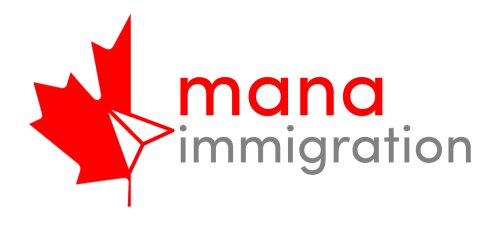Best Lawyers in Shiraz
Share your needs with us, get contacted by law firms.
Free. Takes 2 min.
List of the best lawyers in Shiraz, Iran
Iran Legal Questions answered by Lawyers
Browse our 1 legal question in Iran and read the lawyer answers, or ask your own questions for free.
- Do you make owner and builder contract agreement
- I want to build a building and would like to hand-over to a builder the developement. What kind of contract i should make for my security of work is performed perfectly with binding commitments.
-
Lawyer answer by Milani Law Firm
If you are the owner of the land and wish to delegate construction to a third party, a contracting agreement is recommended.
Read full answer
About Hiring a Lawyer in Shiraz, Iran
Hiring a lawyer in Shiraz, Iran, is a structured process that requires carefully selecting a legal expert who specializes in the area of law relevant to your need. The first step involves identifying the type of legal assistance you require, whether it is for personal, family, business, or criminal matters. Once the legal issue is identified, you can reach out to lawyers or law firms that specialize in that area. Many firms offer initial consultations to discuss the case and determine how they can assist. It is important to ensure the lawyer is registered with the Iran Central Bar Association, as this guarantees their credentials and right to practice law in Iran.
Why You May Need a Lawyer
There are various situations where hiring a lawyer becomes essential in Shiraz, Iran, including but not limited to:
- Family law matters, such as divorce, child custody, or inheritance disputes.
- Business legal services, including contract drafting, business formation, and litigation.
- Property issues like real estate transactions or disputes.
- Criminal defense for accusations ranging from minor to severe offenses.
- Employment and labor law disputes between employers and employees.
- Immigration matters for individuals looking to reside or work in Iran.
Legal expertise can provide the necessary guidance and representation to navigate these complex situations effectively.
Local Laws Overview
The legal framework in Shiraz falls under the jurisdiction of the Islamic Republic of Iran, and is primarily based on Islamic law. Understanding the key aspects of these laws is crucial for both lawyers and clients:
- Family law is heavily influenced by Islamic principles, affecting marriage, divorce, and inheritance.
- Criminal law in Iran encompasses a wide range of penalties and is guided by the Iranian Penal Code.
- Contract law covers agreements and transactions and requires careful drafting to ensure enforceability and compliance.
- Employment law dictates the employee rights and employer responsibilities, overseen by the Ministry of Labor.
It is important to work with a lawyer who is knowledgeable about these laws to ensure proper legal standing and compliance.
Frequently Asked Questions
How do I verify the credentials of a lawyer in Shiraz?
Legal professionals in Shiraz should be registered with the Iran Central Bar Association. You can request their bar membership number and verify their status through this association.
What should I consider when choosing a lawyer?
Consider the lawyer's expertise in the relevant area of law, their experience, the complexity of your case, and their reputation. Initial consultations can also provide insight into their working style and approach.
Are legal fees in Shiraz fixed or negotiable?
Legal fees can vary depending on the complexity of the case and the lawyer's experience. Some lawyers offer fixed fees for certain services, while others may charge hourly rates. It's important to discuss and agree on fees before engaging their services.
Can I represent myself in legal proceedings?
While it's legally possible to represent yourself, having a lawyer can significantly increase the likelihood of a favorable outcome due to their expertise and understanding of the local legal processes.
What languages do Shiraz-based lawyers typically speak?
Most lawyers in Shiraz speak Persian (Farsi), and many also have proficiency in English, which is helpful for expatriates or foreign clients.
How long does the legal process usually take in Shiraz?
The duration of legal proceedings can vary greatly depending on the complexity of the case, the court's schedule, and the potential for appeals. Your lawyer can provide a more specific timeline based on your case.
Is confidentiality maintained when consulting a lawyer?
Yes, confidentiality is a key principle in the client-lawyer relationship, ensuring that all shared information is protected under legal privilege.
Can I switch lawyers if I am not satisfied with their service?
Yes, clients have the right to change their legal representation if they are not satisfied, though it's important to consider contractual obligations and any potential impact on your case.
What types of payment methods are accepted by lawyers in Shiraz?
Lawyers typically accept payments via bank transfer, cheque, or cash. Ensure you receive a formal receipt for any payments made.
Are there any free legal services available in Shiraz?
Some organizations may offer pro bono services or legal aid for specific cases, primarily based on income or the nature of the case. It's advisable to inquire directly with law firms or local legal aid organizations for such opportunities.
Additional Resources
For additional help and resources, consider reaching out to the following:
- The Iran Central Bar Association: Responsible for licensing and regulation of lawyers in Iran.
- Ministry of Labor and Social Affairs: Offers guidance on employment laws and regulations.
- The Judiciary of the Islamic Republic of Iran: Provides information on the legal system and court processes.
Next Steps
If you require legal assistance in Shiraz, start by identifying the specific legal issue you are facing. Research potential lawyers or law firms that specialize in this area, and arrange initial consultations to discuss your case and gather advice. Verify the lawyer’s credentials and agree on terms of engagement, including fees. Throughout the process, maintain open communication with your lawyer to ensure all your legal needs and expectations are met effectively.
Lawzana helps you find the best lawyers and law firms in Shiraz through a curated and pre-screened list of qualified legal professionals. Our platform offers rankings and detailed profiles of attorneys and law firms, allowing you to compare based on practice areas, experience, and client feedback.
Each profile includes a description of the firm's areas of practice, client reviews, team members and partners, year of establishment, spoken languages, office locations, contact information, social media presence, and any published articles or resources. Most firms on our platform speak English and are experienced in both local and international legal matters.
Get a quote from top-rated law firms in Shiraz, Iran — quickly, securely, and without unnecessary hassle.
Disclaimer:
The information provided on this page is for general informational purposes only and does not constitute legal advice. While we strive to ensure the accuracy and relevance of the content, legal information may change over time, and interpretations of the law can vary. You should always consult with a qualified legal professional for advice specific to your situation.
We disclaim all liability for actions taken or not taken based on the content of this page. If you believe any information is incorrect or outdated, please contact us, and we will review and update it where appropriate.
Refine your search by selecting a practice area.































